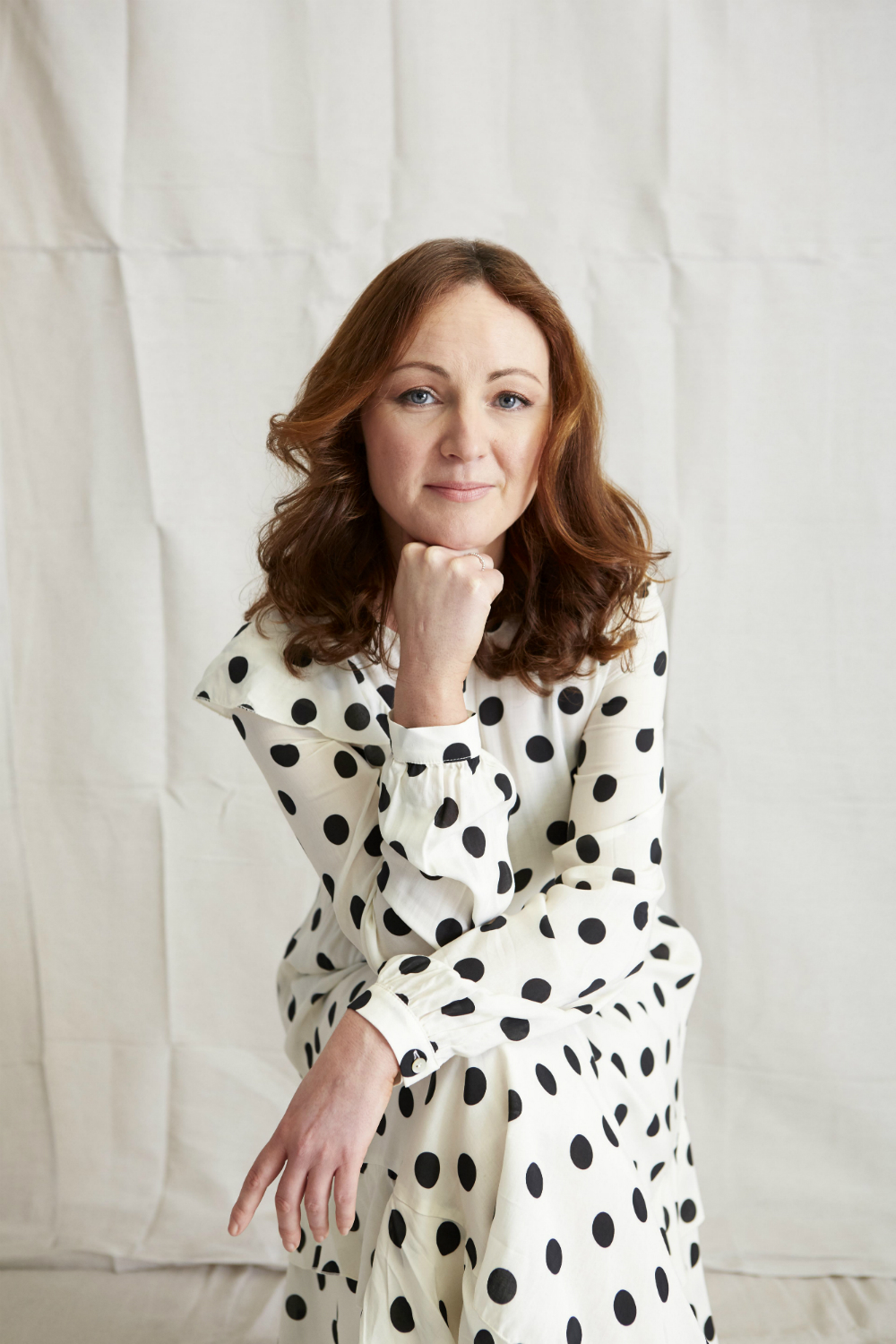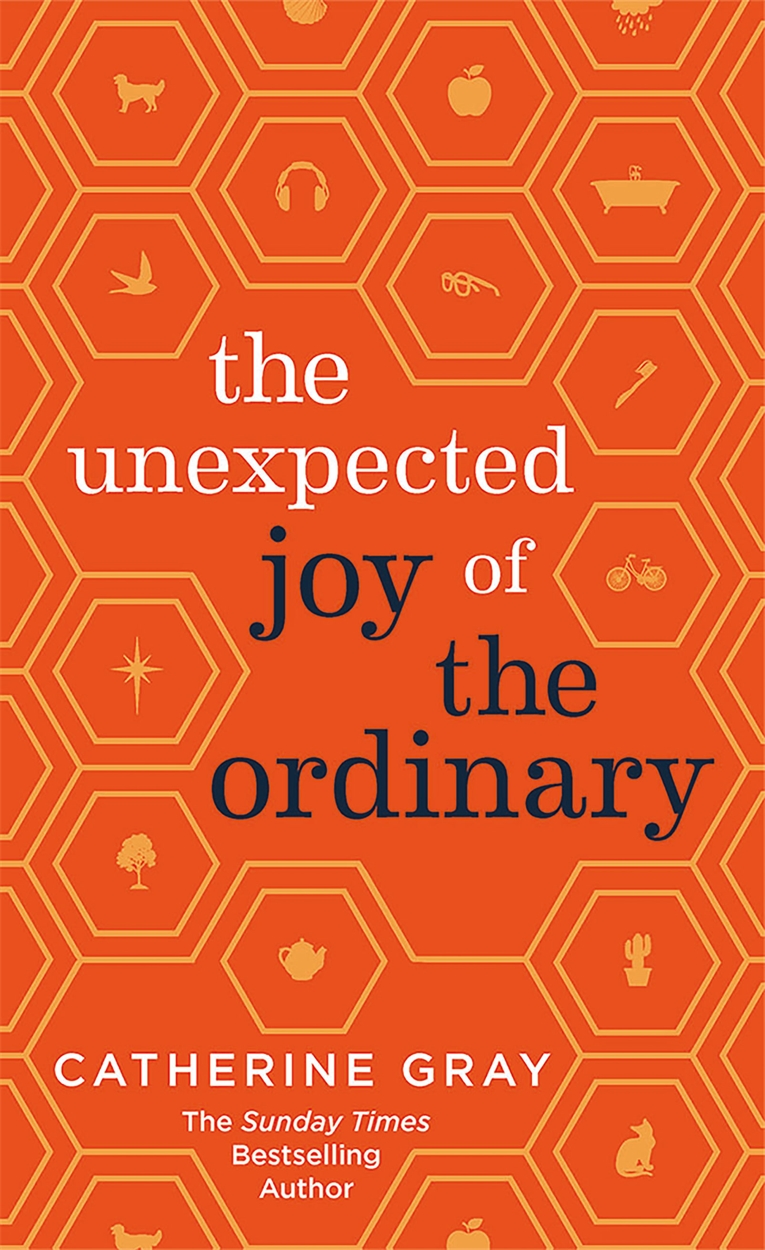Seven ways to see the beauty in the everyday
As our hectic daily routines come to a sudden halt, now is as perfect a time as ever to stop, take stock and find some joy in the little things. Catherine Gray tells us how to do gratitude the no-nonsense, British way

As our hectic daily routines come to a sudden halt, now is as perfect a time as ever to stop, take stock and find some joy in the little things. Catherine Gray tells us how to do gratitude the no-nonsense, British way
I can’t believe I’m writing this article. Or, more accurately, 2013-me can’t believe it. She is currently engaged in maximum lip curl at the notion of finding the joy in the everyday. ‘Gimme a break!’ she’d cry. ‘What a bunch of new age, touchy feely, Oprah-esque poppycock.’
However, 2013-me found herself in one hell of a mental health dilemna. Having quit alcohol due to addiction, 2013-me realised that unless she changed her thinking, the drinking would resume. I was two months sober, but still feeling really sorry for myself. I had a ‘poor me, pour me another’ victim hangover, that was still kicking around, despite the absence of booze.
So, when I saw a shout-out on Facebook for a ‘gratitude group’, based on the premise that ‘a grateful heart never drinks’, I contained the Patsy Ab Fab within me, who wanted to spit at the screen and spark up a Sobranie, and instead, I expressed an interest. I knew I had to shift my bone-deep disgruntlement with myself / my life, and here was a possible way.
And so, I started accidentally researching my latest book, The Unexpected Joy of the Ordinary. I began pulling gratitudes from the back of my dissatisfied brain every-damn-day, mental rain or shine. Eventually it became second nature for me to alight on what’s right, rather than what’s wrong.

Here’s what I’ve learnt:
1. You most likely have a negatively-biased brain. Because you have a brain. I interviewed a neuropsychologist who told me there are very fortunate souls out there, who have a ‘joyful amygdala’, but the vast majority of us have a ‘grouchy amygdala’.
This basically means that the emotional response system in our brains (ie. the amygdala) is like a cross between Eeyore, any Jack Nicholson character, and Miranda SATC. Think auto-gloom, pessimism and a lawyer-esque eye for how you could be hoodwinked.
Celebrity news, beauty, fashion advice, and fascinating features, delivered straight to your inbox!
This has evolved to save our skins. It was really useful back in hunter-gatherer days for our brains to yell ‘watch out for that weird berry!’ or ‘she looks angry, appease appease’, but now, not so much. However, we can cheer up even the grouchiest amygdala, and one of the most research-backed ways to do so is: gratitude.
2. Gratitude isn’t just for Kimmy Schmidts who purchase glitter-covered ‘Count your Blessings’ journals. Even I still hard-side-eye articles called ‘The Power of Gratitude’ but I know now; it’s just science. It works. Hundreds of studies show that gratitude is transformative to mental health, and seemingly on a par with exercise for the wellbeing wallop.
Why? See point 1, but also, our brain reacts more passionately to the negative (proven by actual brain scans), and remembers it more. So, it’s not quackery or woo; I think of it more as re-balancing a neuroscientific quirk in my brain. Of evening out the negative / positive bias.
3. The first step is simply noticing nice things. Our brains outrage at the person who shoved us on the tube, rather than radiating thanks at the person who smiled. The person who cut us up at that junction, rather than whoever let us out. And so, the next time you see something joyful (a dog running towards you with unbridled love, a kid in a bear outfit), beautiful (street art, a monkey puzzle tree, a bench with a lovely inscription) or someone does something kind, such as holding a door open for you… just clock it. Tick. Noticed. Done.

4. Then start recording the day’s beauties, whichever way floats your boat. I’m a writer, so I fill books with scribbled nightly gratitudes. These are not beautifully written; I would be mortified if anyone ever saw them. But to sound terribly clichéd, you do you. Play to your strengths. Snap them, record them via voice note, talk about them with your housemate, doodle them, visualise them when your head’s on the pillow. Simply recording them in some way evens out your brain’s default ‘here’s what went wrong today’ setting.
5. Keep it snappy. Eight is the magic number, psychologist Dr Sonja Lyubomirsky told me. Research has shown, she said, that any more is overkill.
6. Try to find things specific to that very day, as other research shows that re-played, repeated gratitudes (‘I love my racing green Mini Cooper’ or ‘I’m grateful for my job’) lose their power alarmingly quickly.
7. If you’re having a fecker of a day, that’s OK. Anybody who tells you they feel ‘grateful all the time’ is either in denial, or straight-up lying. Traditional gratitude literature tends to guilt-trip. ‘How very dare you feel less than wondrous, you first world ingrate. You have a roof over your head, while millions don’t have a pot to p*ss in!’
Nope. Just because we live in the first world, it doesn’t mean we’re disallowed negative emotions. Let the mood roll in, and roll out. Numerous studies have shown that suppressing negative emotions doesn’t work, anyhow.
Gratitudes took me from being utterly disenchanted with my everyday world, from ‘I’ll be happy when I’m on holiday / promoted / engaged’ malcontent, to how I am now: default content. I still have my resentful ‘life not fair. Hate life’ moments. Or my princessy ‘why haven’t they de-headed my prawns, I don’t want to touch their creepy eyes!’ thoughts. But when I’m underwhelmed, or being a tool, I now have a tool. And that’s gratitudes.
Give them a spin. All you have to lose is your dissatisfaction.
* The Unexpected Joy of the Ordinary by Catherine Gray, published by Aster, £14.99 www.octopusbooks.co.uk (All sources and studies mentioned in this article are cited in the back of the book)

*Catherine Gray is an award-winning writer whose hit debut book, The Unexpected Joy of Being Sober, became a Sunday Times top 10 bestseller within a fortnight of publication. You can follow Catherine on Twitter @cathgraywrites or on Instagram @unexpectedjoyof
The leading destination for fashion, beauty, shopping and finger-on-the-pulse views on the latest issues. Marie Claire's travel content helps you delight in discovering new destinations around the globe, offering a unique – and sometimes unchartered – travel experience. From new hotel openings to the destinations tipped to take over our travel calendars, this iconic name has it covered.